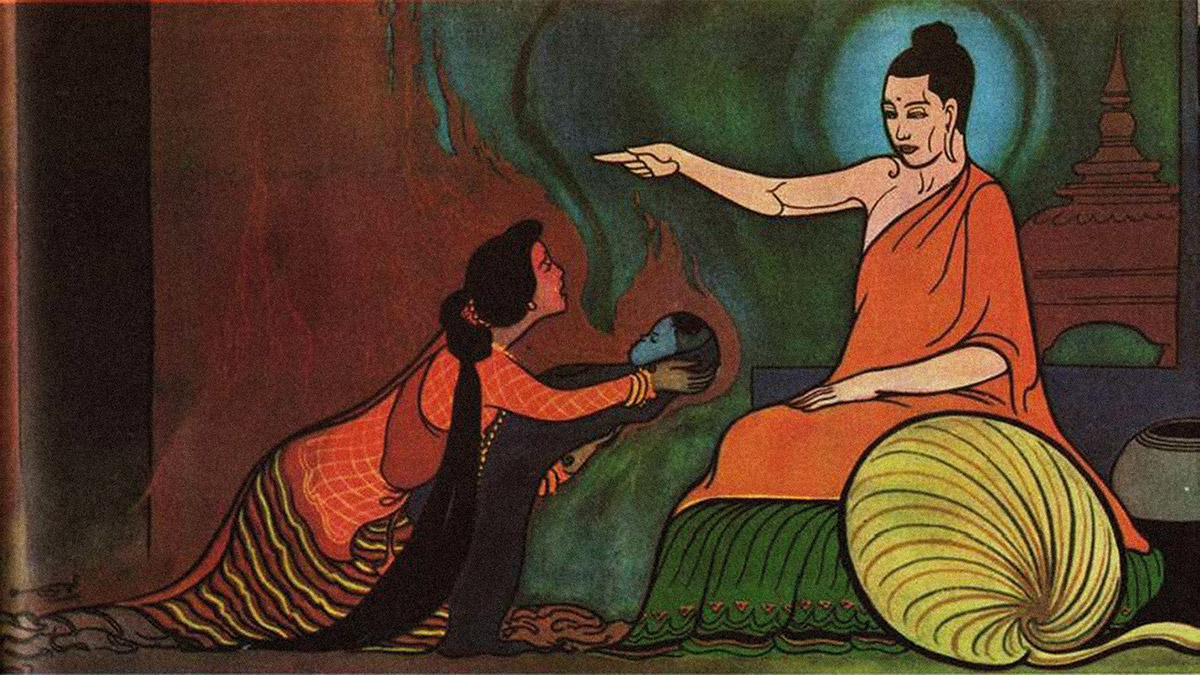Within the household of care and concern, sympathy, empathy, and compassion are kin. Like kinfolk, these virtues might develop alongside one another, providing their distinctive views on and responses to the human situation. Whereas the three attributes are related, it’s useful to know how they differ. Sympathy resides in our ideas. Empathy inhabits our emotions and bodily our bodies. Compassion strikes the center to motion.
The goddess Guanyin, “She Who Hears the Cries of the World,” is the Buddhist embodiment of those virtues. She’s generally depicted with a thousand arms and a watch within the palm of every hand—on the able to see struggling, face it, embrace it, and dispel it. It’s essential to have a transparent understanding of the qualities Guanyin personifies so we could also be impressed by them, use them to fine-tune our hearts and minds, and infuse our actions on the earth with loving-kindness.
It’s additionally essential to know what in Buddhist phrases is known as the “close to enemies” of those virtues—qualities that resemble, however really impede them. I like to consider these close to enemies because the shadow sides of those illuminating virtues, as they darken them. We have to know what diminishes the sunshine and obscures our sight so, like Guanyin, we are able to come to see ourselves and the world extra clearly.
Sympathy is an understanding of another person’s misfortune. At a time of a lot struggling on the earth, sympathy is crucial; with out it we run the danger of descending into selfishness, indifference, and larger despair. After we sympathize with others, it’s attainable to acknowledge their humanity—our frequent humanity. Nevertheless, the close to enemy of sympathy is pity. It has us maintain others at arm’s size, feeling by some means superior to them, emphasizing their struggling moderately than their company and resilience. Sympathy’s shadow is indifferent, judgmental; it takes little duty for helping these in want and bears little resemblance to Guanyin’s embrace.
Empathy sprouts from the identical root as sympathy—the Greek phrase pathos, which suggests struggling or feeling. Nevertheless, empathy strikes past sympathy as a result of it includes the flexibility to share viscerally in another person’s expertise; to really feel their pleasure or their ache as if it had been your personal. In truth, we recruit comparable components of our brains once we expertise our personal feelings as we do once we witness the feelings of others. After we’re empathic, we have now put ourselves “of their sneakers,” and in addition of their brains.
But being in one other’s sneakers or mind can lead us to really feel overwhelmed. When confronted with the struggling of mass shootings or lots of unhoused individuals residing on our streets, we would merely shut down as a result of the issue appears too intractable, too huge to bear, not possible to carry with even a thousand arms. Empathy on this type turns into a barrier to motion. It might paralyze us.
There are different shadows that darken empathy. We people have the tendency to really feel deeply for the struggling of members of our personal group, whereas on the identical time being stricken by a robust in-group/out-group bias. Empathy for “our personal” can justify denial of and even violence towards “the opposite.” This “us vs. them” mentality is the nefarious foundation of the ills and isms that plague humanity and the planet, together with colonialism, genocide, violence, oppression in all its varieties, struggle, non secular persecution, and the degradation of the pure world. Because the humanitarian physician Paul Farmer asserts, “The concept that some lives matter much less is the basis of all that’s incorrect with the world.”
Compassion extends past sympathy and empathy. It includes deep feeling plus sensible motion. It’s described because the “quivering of the center” in response to a different’s struggling and the motion towards assuaging that struggling. Compassion shares shadow sides with sympathy and empathy—pity and paralysis. However when compassion takes the type of significant motion, it may well counter the sensation of being overwhelmed as a result of it permits us to channel our emotions right into a concrete means of expressing solidarity and help for these in want.
There’s a Buddhist story that shines a light-weight on sympathy, empathy, and compassion. On this story, a lady named Kisagotami has a beloved solely baby—an toddler son—who dies out of the blue. She goes mad with grief and carries the lifeless physique of her baby by the village, wildly beseeching her neighbors to offer her the medication that can revive him. All know that no such medication exists and are at a loss to assist her—some pity her and attempt to discuss sense into her to no avail; others empathize however then shut their doorways to her as a result of her uncooked ache is an excessive amount of for them to bear.
Lastly, a compassionate sensible elder sends Kisagotami to see the Buddha, who tells her he can provide her medication, however solely after she brings again a handful of mustard seeds from a house that has skilled no dying. So Kisagotami units out once more, transferring from home to deal with. She will be able to’t, nonetheless, discover anybody who will help her, as a result of individuals in each home have endured a devastating loss—of a mum or dad, baby, partner, or beloved.
As night time falls, Kisagotami’s understanding dawns. She goes into the forest to bury her son after which returns to the Buddha, dropped at her senses by the facility of the compassion she feels for her neighbors and herself. She understands that her grief just isn’t distinctive, that she’s within the good firm of all those that have additionally beloved and misplaced. She understands the truth of our interconnectedness and finds solace in our shared humanity.
I acknowledge Kisagotami’s story from my very own life. Years in the past, pregnant with a child boy, I used to be on the midwife’s workplace, after I out of the blue heard a loud wailing coming from the room subsequent door. The sounds of lamentation had been like nothing I’d ever heard earlier than—uncooked, primal, agonized, agonizing. My midwife rushed out of the room. When she returned a protracted whereas later, eyes crimson, she defined that the cries had been from one other affected person, a mom who’d just lately had a stillbirth and was again for her postpartum examination. My thoughts reeled; I used to be shocked into silence. Such a factor may occur? Might such a factor occur to me?
I walked out of the workplace in a daze, into the too-bright solar of the car parking zone. Simply steps forward was the mom, leaning closely on the arm of her accomplice, weeping, limping to their automobile. I clutched the arm of my very own accomplice, feeling the useless weight of the mom’s ache in my very own physique. However I used to be overwhelmed by her anguish and felt myself recoiling. Just like the villagers who closed their doorways to Kisagotami, I felt the shadow facet of empathy fall over me like a chill. I received into my automobile and shut the door to her cries. I used to be sympathetic to her, however I considered her as fully totally different from me. My child was wholesome; my being pregnant was positive; what occurred to her would by no means occur to me.
However months later, out of the blue, like being struck by a truck, it did occur. Unfathomably, I, too, had a stillbirth. My cries joined the refrain of cries heard by Guanyin. Over the course of these darkish nights, mercifully held within the compassionate embrace of family and friends, I used to be in a position to open my coronary heart to bereaved moms and broken-hearted individuals the world over, from time immemorial to instances but to come back. The next 12 months, whereas I used to be holding my child lady born simply days earlier than, an previous pal known as with the wrenching information of his spouse’s stillbirth. With my two arms, I reached out throughout the gap to embrace them.
Within the face of the struggling we’re uncovered to every day—in our personal and others’ lives—might we domesticate the qualities of sympathy, empathy, and compassion to do our half to alleviate the struggling of this world with out turning away, with out shutting anybody out.



